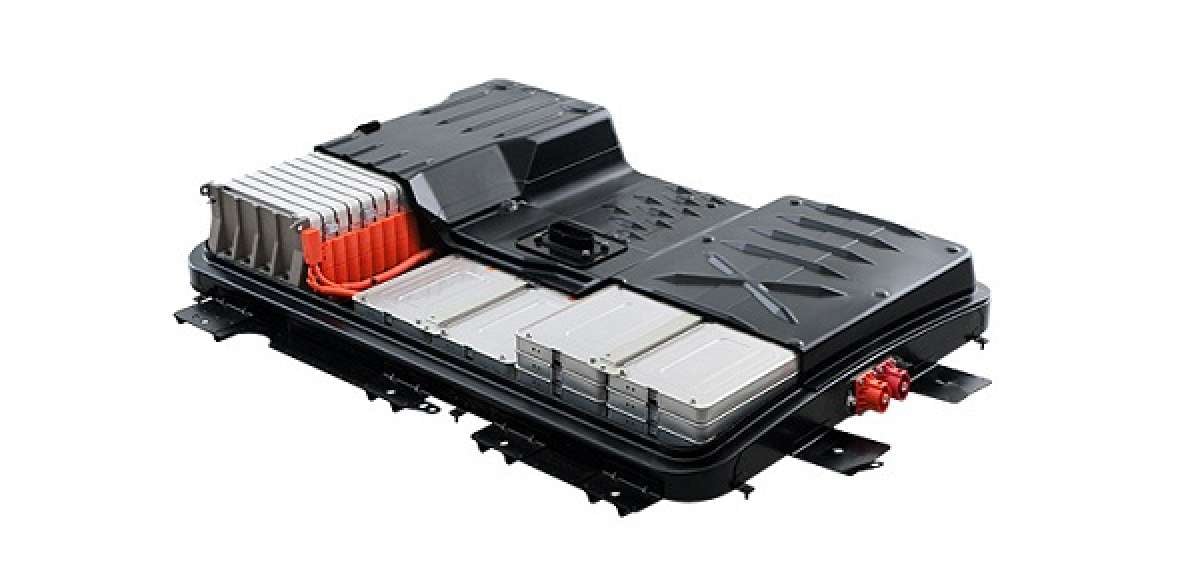The battery pack is the heart of any electric vehicle. The cost and energy density of advanced lithium-ion batteries have so far restricted the enormous potential of electric cars, however, and significant improvements in the technology are essential for the future success of the EV industry.
Nissan contemplates a major change
When the Nissan LEAF was in the planning stages, the automaker envisioned itself as a leader in battery technology and manufacturing as well as the electric cars themselves.
Nissan formed a partnership – known as the Automotive Energy Supply Corporation – with NEC to make Nissan LEAF battery packs in-house at the Smyrma, Tennessee plant funded with a $1 billion federal investment.
It turns out, though, that Nissan may have tried this strategy a decade too early. A new report from Reuters cites several Renault-Nissan sources and executives indicating that the automaker may be forced to turn to South Korean battery maker LG Chem, already the supplier for an alleged 200-mile EV, to remain competitive in the EV segment.
"We set out to be a leader in battery manufacturing but it turned out to be less competitive than we'd wanted," said one executive on condition of anonymity. "We're still between six months and a year behind LG in price-performance terms."
As a result, Renault-Nissan is negotiating with NEC concerning a shift to dual sourcing with LG Chem poised to step in, according to anonymous sources. The debate has divided the automaker alliance, with Renault supporting LG sourcing and Nissan engineers lobbying to keep batteries in-house.
"When you're developing cutting-edge technology, the best way to know about that technology is to build it in-house," said a Nissan engineer. "That's what Tesla is doing."
One possibility, and seemingly the most likely option, would be that LG Chem would take over at an overseas Nissan battery plant in either Smyrma, Tennessee or Sunderland in the U.K.
What about the next-generation LEAF?
In this scenario, LG Chem would assume responsibility at the Smyrma plant and produce the battery packs to power the important next-generation LEAF, which will be offered with multiple battery pack sizes and has been expected as a 2017 model year.
It is far from a sure thing at this point, but there are a few reasons this should happen. A great deal of money has been invested in the plant, and closing it would be disastrous for Nissan. The automaker would take a huge financial hit if both battery plants are closed.
LG Chem also likes to manufacture their batteries close to where they are needed, with the most prominent example being the Holland, Michigan facility that supplies GM and Ford vehicles. A switch to LG Chem makes achieving 150 miles of range for the next-gen LEAF more feasible, as it offers superior technology to what Nissan has been able to develop in-house. LG Chem will also benefit from improved economies of scale, which will only help costs.
Would the switch to LG Chem bring delays in production of the next-generation LEAF? It certainly is a possibility, as switching suppliers is never trivial, particularly for a component as performance and safety critical as the battery. If the move is made quickly, though, delays could be avoided. A decision on the existing Nissan battery plants in Smyrma and Sunderland is expected next month.
Staying the course
Rest assured, whatever happens Nissan "remains 100-percent committed to its industry-leading electric vehicle program" and has no plans to write down battery investments, spokeswoman Rachel Konrad said. The next-generation LEAF remains the most crucial piece of the puzzle if Nissan hopes to maintain its position as the world leader in electric vehicles.






Comments
LG winning the Nissan
Permalink
LG winning the Nissan contract would drop the price of all large li-ion batteries. While I want to see Nissan continue to produce their own batteries, a lower cost battery would only help their bottom line and sell more cars.
Switching to LG Chem
Permalink
Switching to LG Chem batteries would drop the price and improve the range of the Leaf. Sadly it looks like the new LG Chem batteries are going to the Infiniti sub-brand. Being the owner of a 2011 Leaf I can tell you that Nissan has no idea what its doing when it comes to building EV batteries. The problem prone battery in the current Leaf is a good example of what happens when car engineers build batteries and not Battery engineers. I see the switch to LG Chem as a step in the right direction.
I own a 2012 nissan leaf and
Permalink
In reply to Switching to LG Chem by mike w (not verified)
I own a 2012 nissan leaf and I am very disappointed of the quality of the battery, I will never buy a nissan ever again. Liars!!!!
I also will never buy another
Permalink
In reply to I own a 2012 nissan leaf and by diego jimenez (not verified)
I also will never buy another Nissan. Waiting for the 2016 Volt to hit the showrooms. It wouldn't be so bad except Nissan has surrounded its self with lawyers and deny/refuse to replace those early defective batteries. The half baked warranty they offer is proof that they don't want to replace very many of those batteries. Liars doesn't go far enough to express my feeling toward Nissan.